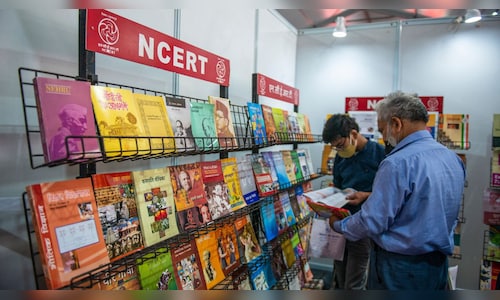According to the Performance Assessment, Review and Analysis of Knowledge for Holistic Development (PARAKH) Program, a new unit of NCERT CertificateThe new report will also include vocational and skills-based training.
The suggestions were made in a report titled ‘Establishing equivalence among education boards’, which outlines a proposal to assess the overall performance of students in classes 9, 10 and 11 while preparing Class 12 results. NCERT Certificate The report was sent to the Union Ministry of Education iin July.
“The weighting of formative and summative grades will be progressively adjusted from grades 9 to 12, with increasing emphasis on summative assessment as students advance through the grades. Specifically, grade 9 features a 7 percent split of formative grades and 30 percent summative grades, grade 10 features an equal 50 percent split of formative and summative grades, grade 11 features a 40 percent split of formative grades and 60 percent summative grades, and grade 12 features a 30 percent split of formative grades and 70 percent summative grades,” the report reads.
The report suggests incorporating cumulative performance metrics: 15% from 9th grade, 20% from 10th grade and 25% from 11th grade. “Accordingly, cumulative grades at the end of secondary school are 15% for 9th grade, 20% for 10th grade, 25% for 11th grade and 40% for 12th grade,” he added.
According to the report, the assessment framework will be divided into two periods for Grades 10 and 12. To promote holistic learning, as outlined in the National Education Policy 2020 (NEP 2020), the report recommends creating vocational and skill-based subjects such as data management, coding, app development, artificial intelligence, music, and arts and crafts.
Emphasis is also placed on the need to evaluate teacher performance and improve school infrastructure, including providing access to clean water, well-resourced libraries and adequate sports facilities to promote an environment conducive to learning.
“Terms will include classroom assessments through HPC, which will include portfolio assessment, self-assessment, peer assessment, teacher observation, group work and laboratory activities,” the report adds.
However, according to reports from The Free Press Journal, the new proposal has left many principals and parents in a state of uncertainty. While some agree that the concept must have some value and can keep students engaged throughout the four years, others believe that this approach can put unnecessary pressure on their wards.
Disclaimer:
The information contained in this post is for general information purposes only. We make no representations or warranties of any kind, express or implied, about the completeness, accuracy, reliability, suitability or availability with respect to the website or the information, products, services, or related graphics contained on the post for any purpose.
We respect the intellectual property rights of content creators. If you are the owner of any material featured on our website and have concerns about its use, please contact us. We are committed to addressing any copyright issues promptly and will remove any material within 2 days of receiving a request from the rightful owner.

